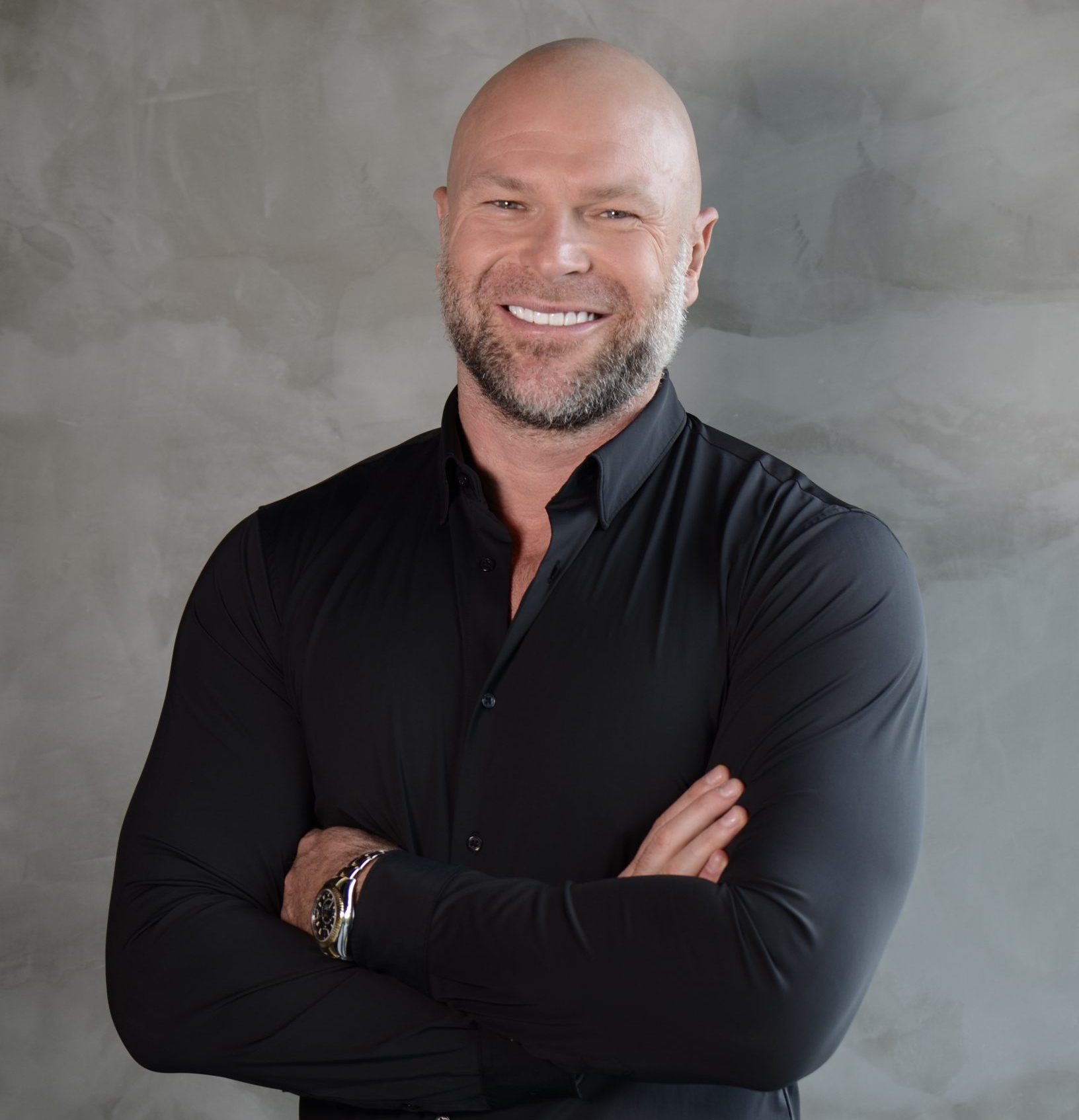During the last ten years alone, I’ve hired more than 1,000 sales people whom I personally met and either interviewed initially or in a final interview.
In my experience, there are a few key million dollar questions.
- What to look for in candidates when aiming to hire your future sales superstars?
- What characteristics should you scout for in a candidate who lacks sales-experience?
- How do you create a framework for this to work at scale and in collaboration with your talent acquisition team?
You see for me, hiring the right people for your startup is probably one of the biggest factors to determine your success. Many many other entrepreneurs, authors and business experts share this notion, but rarely have I heard sales leaders put the same emphasis on this when hiring a sales team.
In fact, from my experience, it’s often a quite unstructured process and with little strategy behind the efforts. After all, it’s “just” sales right? Nothing as complex as product development or engineering. WRONG!
World-class sales hiring is probably the single most important factor in determining the success of your company!
Let that sink in for a second. Again, with no consistent high volume of sales in your company, there’s no growth. With no growth there’s no new hires to be made, products to be developed, new markets to be conquered, new roles to be created, funds for marketing campaigns to be designed, promotions, salary increases, opportunities to make an impact, etc.
So with this notion, and when hiring 1,000+ people over the years, despite everything else going on in the business (sales to be made, processes to be created, constant fires to be put out), I still prioritized and made time to sit in on thousands of interviews.
During this process and very informative experience, I began detecting patterns for sales excellence and so developed a set of twenty characteristics that I think define sales superstar talent.
So let’s assume you have a good onboarding process and coaching framework in place. Given that, if you can find inexperienced sales candidates who possess the majority of the below-mentioned characteristics, then you’ll be almost guaranteed to build a high-performance sales team that can deliver outstanding results with predictability and consistency!
1. Goal-Oriented
This is probably one of the characteristics I primarily look for in a potential rising star. You see, in sales you’re constantly pursuing goals. The goal of landing xyz client, the goal of reaching your monthly/quarterly quota and even the constant partial milestone goals of scheduling a meeting, sending out the agreement and getting the payment. So if an applicant is highly goal-oriented, this is a huge plus in my book!
Even if it’s personal goals such as: “Gary, I’m taking this sales role because I know I can make a lot of money and that’s how I can realize my dream of buying a house.”
Another good example is an applicant who is goal-oriented with regards to their career trajectory. For example, my absolute top sales performer at my last company, consistently outperformed the other best reps by 2-3x in revenue.
When I interviewed him and explained our performance-based sales career ladder and showed a trajectory of him potentially moving from a Junior Rep to Sales Director, his response was: “Gary, I want to know what it takes to get your seat”. Now that’s a goal statement I love!
2. Passionate
Prospects can easily detect if a sales rep is enthusiastic about their job and the solutions they’re selling. This may be difficult to attain if you’re selling some product or service that makes less of an impact on the world; but there’s always ways to spin this as a founder.
For example, at my last company, we “just” sold digital marketing products for tech companies like Google and Microsoft. But instead we put the focus on events where we helped change a small business around for the better by generating leads and sales they otherwise wouldn’t have attained without our help.
Another angle was highlighting how we were indirectly changing economics for the middle-class in a third-world country (Nicaragua) by offering salary levels previously unheard of from other companies. Our entrance in the country forced all other bilingual-focused companies to up their salaries to compete with us.
3. Prior Success
Now this is not necessarily restricted to sales. It can also be in sports, academics, business or any other competitive area of their life.
If a candidate has a proven track-record and became #1 In their field or recreational passion, they have already demonstrated to you they can be committed, disciplined, hard-working, goal-oriented and responsible.
Nobody can reach that level of success, whether as a top athlete or academic, without demonstrating those qualities.
Now the question is for you to identify whether or not you believe they can transfer those very same qualities to their upcoming role in sales. The right sales leader knows how to push those buttons and reignite those behaviors and with such you have a very strong foundation to develop a sales superstar.
4. Curious:
This is an incredibly important characteristic for the process of creating a high performing sales rep.
They have to be constantly curious about the market, their competition, how they can sell better, their prospects, what their goals are, their challenges, how to keep up to par with product updates, and much more.
In today’s connected world with ease of access to information online, anyone anywhere can find answers to most problems—if they’re just curious enough to seek the information. Few people bother to put forth the effort and that’s why curiosity can go a long way in sales.
A good way to identify this characteristic is simply to assess how many questions the applicant asks you before, during and after the interview has taken place.
5. Coachable:
For me this is almost a deal-breaker when hiring a candidate. How can you develop a potential sales superstar if they cannot embrace feedback, reflect on areas of self-improvement and then apply it?
A top performer is almost always committed to their own professional development and constantly looking for ways to improve. They are able to park their egos on the backseat and listen to feedback from their customers, peers or managers.
From my experience, regardless of the levels of talent, if an applicant isn’t receptive to your input during a fictional role play scenario or assessment during the interview process, I’d rather let the candidate go in favor of a hire that may require extra coaching effort but conversely listens and applies your feedback.
6. Disciplined:
Sales is a tough environment. It requires a strong, determined and disciplined mindset to daily go through countless rejections, setbacks and disappointments and then continue with the activities required to pursue one or more partial victories during the day.
Imagine going through two or three setbacks in a row during the morning and then needing to elevate your mindset and attitude for your next meeting. That kind of bounceback mentality requires disciplined behavior!
I prefer to hire people who are fit, exercise a lot, are in good shape and eat healthy, since getting in shape requires a certain degree of disciplined behavior. You don’t grow muscle without determination to consistently hit the gym.
7. Energetic:
Perhaps it’s just my Type A personality, but I don’t find that someone with low energy can get the job done. I want people who have things to do, goals to meet, and are constantly eager to advance.
That requires high energy and when translated to sales it’s usually a strong factor in determining success.
A little trick I do is to pick up applicants at the HR office or downstairs and accompany them to the interview room. If they walk slowly they’re already points behind before even starting our interview.
If your company has bold and lofty goals, you must surround yourself with a team equally energized to get shit done!
8. Enthusiastic:
A key for success with sales. There’s plenty of competition in any business and if you don’t convey a strong sense of enthusiasm for your product and the opportunity to do business with your prospect, then forget it—you’ve already lost the deal.
So how do you detect enthusiasm during an interview and screening process? First and foremost, keep track whether it’s consistent in interview one, two, three and four. Secondly, remember that communication is not just our words.
In fact, the words we speak account for as little as 7% of our communication. The rest is our tone of voice, body language and posture.
So look for their overall ability to project enthusiasm through emotions and how they communicate with you. Someone slouching during the interview or talking super slow and quiet, only gets five minutes of my time in an interview. They’re not going to make it in sales.
9. Problem Solver:
Real sales is all about solving problems and creating desired results.
Taking the time to truly understand the client’s needs, challenges, industry, opportunities, etc. in order to help the client with a customized solution is what a true problem solving salesperson does everyday.
Boiling an often highly complex and long sales process can be as simple as first asking relevant, challenging questions and with that intel identify possible problem areas for improvement. Then, based on that intelligence, suggest solutions to help the customer achieve their targets and goals.
I usually conduct role plays during interviews and give a hypothetical use case in which I ask an interviewee to “sell me” in order to gauge how good they are at this process.
And if they fail, I provide feedback through questions to see how coachable they are on their second and third attempts.
10. Good Collaborator:
This is almost a do or die for developing a sales champion. The more you sell, the more you’ll have to collaborate with other internal team members in your company whether they be marketing, admin, operations, finance or fulfillment.
The same goes for external collaboration, whether it’s your partners or team at the client’s company. Good collaboration skills are a necessity.
Trust me, you don’t want a lone wolf sales superstar who is ego-driven and doesn’t get along with your other team members. It never ends well and the worst you can do is accept such behavior since it deteriorates the morale of your other staff.
11. Committed:
To their targets, to their clients, to driving results, to learning, to always walking into a meeting on time and being prepared—you name it. Commitment goes a long way in the game of sales.
Thankfully, this is somewhat easy to detect during an interview process. Just look at their past jobs, projects and accomplishments. Have they shopped around and stayed less than a year in each job?
Do they bring up how they attended this course or that workshop but have good excuses for why they don’t have the certificate, the result or recommendation at hand. Those are all signs of someone who lacks commitment and is a “dabbler”.
12. Challenger:
Being a “Devil’s Advocate” is a strong quality in a salesperson. A top performer doesn’t just accept the status quo. You want folks around that if something isn’t right and can be improved, they speak up.
They’re constantly pushing for the better. For themselves, their peers, company and clients.
You want to embrace this behavior in your future sales reps because you’ll never succeed at scaling your company to something great, if you’re just surrounded by a team of “yes sayers”.
13. Responsible:
A no-brainer attribute needed for a high-achiever in any category. But especially in such a performance-driven environment as sales, with constant ups and downs, a true sales superstar is someone who can take full responsibility for the outcome, whether success or failure.
The right candidate owns their result and does not pass blame on the “bad leads” they were assigned, or that they had personal problems which impacted performance, or that xyz prospect didn’t come through as promised.
They’ll do whatever it takes and put forth extra work as needed when behind on targets. Even more importantly, they’ll aim to be ahead of the curve at all times so they have room for the unexpected events that always occur in the game of sales.
14. Good Listener:
Non-negotiable for me in an applicant. Long gone are the days where a strong pitch, charisma and being extroverted were attributes that defined a good sales rep.
Today’s top performers take a consultative approach to selling. They ask a lot of good, intelligent questions that get the buyer thinking. And of course they listen carefully to understand their prospects’ true goals and challenges to ensure they can help solve their problems.
This can sometimes be identified by providing insights and asking questions in a way where a candidate with good listening abilities will be able to pick up on your approach and reply to your questions referencing what you said earlier during the interview.
15. Good Storyteller:
“This reminds me of one of my customers who signed with us a few years ago. Rich is his name. He was in a similar situation as yours and…” One of my best sales reps at my former company loved to start off his position statement like this after asking a whole series of questions.
You see story-telling goes thousands of years back in history and is how many lessons were passed down. So we are naturally drawn to stories because they appeal to our emotions and that often leads to actions, such as buying.
Not all purchases can be defined as rational decision processes but rather are based on our need to seek pleasure and avoid pain.
Some of the best sales people I’ve encountered master the two skills of superbly asking intelligent questions and then tying that up with solutions that are presented partially via storytelling. If you come across this combo, hurry up and make a job offer to that candidate.
16. Intelligent:
Many argue this is perhaps an attribute that doesn’t necessarily equate to success in sales. And while it’s true that intelligence isn’t sufficient, it has proven to me in many events to be an important factor in becoming a leading sales professional; especially in the domains I navigate (digital marketing, tech, B2B and SaaS).
Sellers today, within a short time span, are expected to quickly dissect and understand different business models, identify hidden areas of opportunity, and then effectively communicate complex solutions to prospects in a simple fashion, all requiring a high degree of intelligence.
The same applies for the ability to learn and understand the changes in these fast-paced industries where constant evolution happens.
I try to identify intelligence in applicants, not in a conventional way by issuing IQ tests, but instead by conducting assessments on issued reading material or giving fictional scenarios during a role play. This allows me to gauge their ability to grasp the situation, ask the right questions and attempt to provide solutions based on knowledge they acquired during that process.
17. Hard Worker:
The best phrase I know for this is one I heard tech billionaire Mark Cuban say when describing his early entrepreneurial days: “Work like there’s someone working twenty-four hours a day to take it all away from you!”.
This kind of relentless, resilient and persistent attitude toward the application of hard work to reach success, is a requisite in a top performer.
I’ve come across many many hires where I was utterly impressed with their job interview performance and score on assessments conducted during the interview process, but the ones who lacked the ability to work hard (admittedly very difficult to gauge during the interview process) were always outperformed by their peers who consistently outworked them despite having fewer talents.
Hence during reference checks with their former employers I now always ask about an applicant’s ability to grind hard.
18. Purposeful Positioner:
My first sales manager told me that I should have a purpose with every conversation and interaction I engage in.
A true sales professional is able to shift mindsets, crush roadblocks and get a prospect to understand their vision by always positioning their solutions with a strong purpose and then explain why they need it.
This skill set does require work, training and experience to some degree, but I have found that by asking applicants about something they’re passionate about, I can gauge whether or not they can become a strong positioner of our solutions by the level of how they pitch me and whether they can convince me.
19. Product Knowledgeable:
In today’s internet driven world this is key. Most buyers have conducted at least basic research before reaching out and speaking with a seller. They’re not seeking knowledge they can find on a simple Google search.
If your reps are able to fully understand their product and how its benefits and features can help their prospective clients, they’ll be able to deliver their pitch with more authority, credibility and therefore enhance the buying experience.
Your reps don’t have to develop the knowledge at the level of a product engineer but the better they can understand all the ins and outs, the more effective they’ll be as a sales person.
A way to identify your next sales rep’s ability to absorb and understand product knowhow can be to issue a white paper, product explainer or links to a few blogs prior to your next interview. Then question them to see if they understand the context and can explain what benefits could be particularly relevant for your prospective customers.
20. Confidence:
An absolute requisite for any top level sales performer. If they don’t believe in themselves, the company they work for, or the solution they’re offering, then how the heck can you expect a prospect to believe in them?
Any buyer usually knows that some risk is associated with acquiring a new solution. However if the seller isn’t conveying optimism and confidence that mutual success can be attained through this transaction, you can’t expect any buyer to move forward with a deal. I’d go as far as stating that all successful sales people are confident.
If you can cover most, if not all of these characteristics in your new sales hires, then you’ll be well positioned for sustainable, successful growth, and so will they. Now that’s a winning combination.








